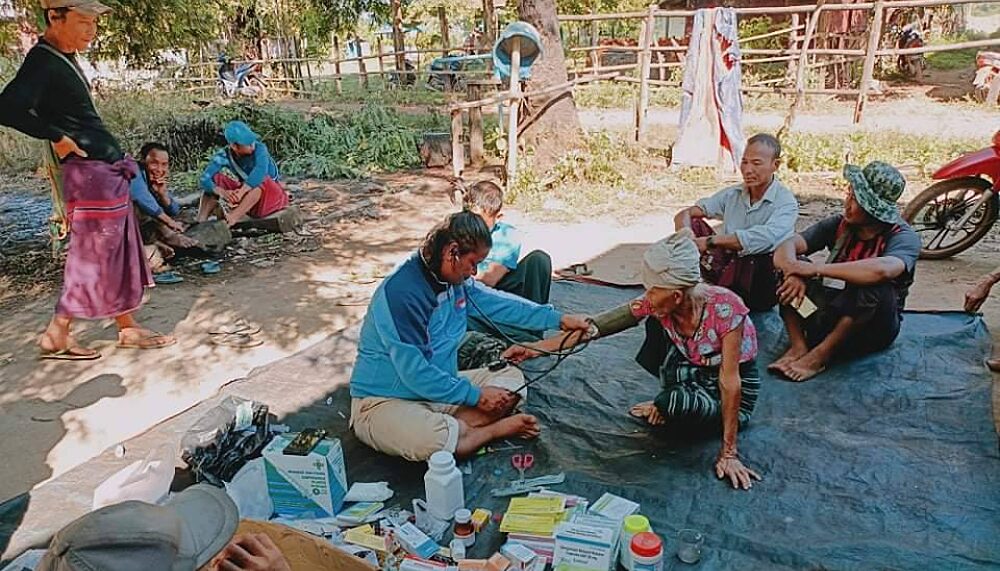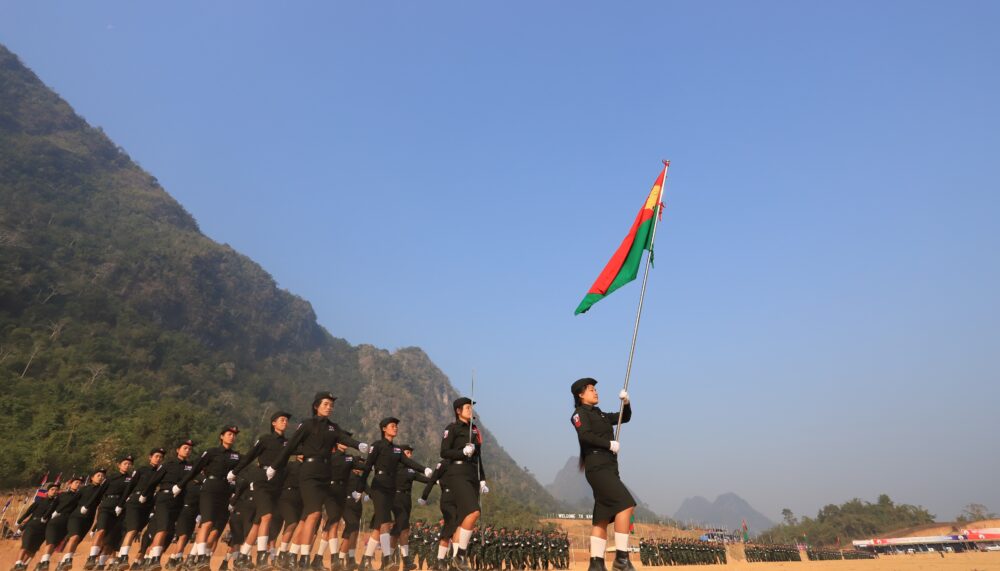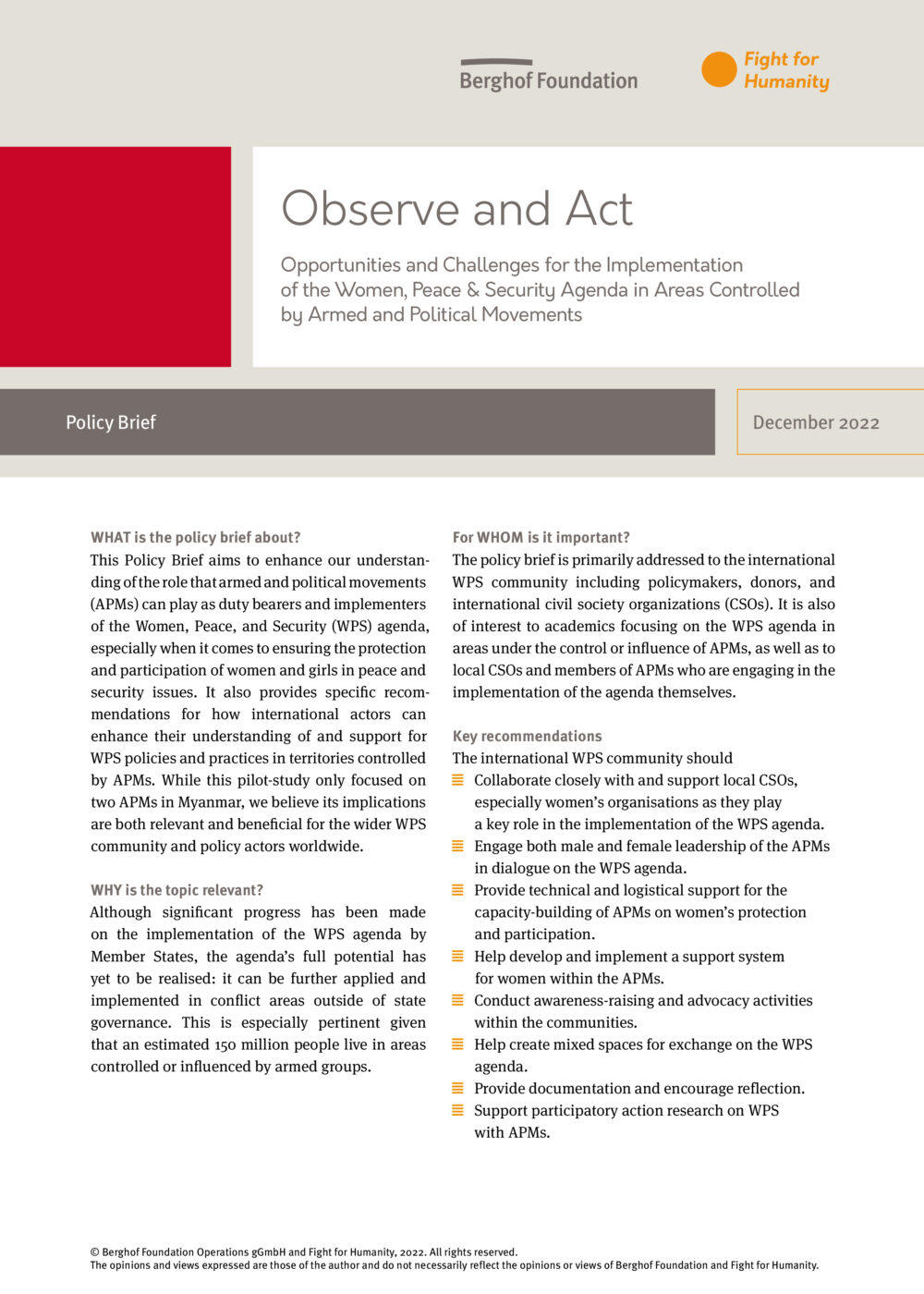BLOG POST | 14 Mar 2023
Fighting for inclusivity
Why we need to work with armed movements to implement the Women, Peace and Security agenda

Our colleague Tilman Papesch discusses how we can engage with armed movements to foster inclusivity in peacebuilding.
By Tilman Papesch
"They don't really treat ethnic armed organisations as a valid or legitimate government of their own people. So, I think they need to start treating [them] that way and to start working with them just like they work with others to improve the government structure or institution. When it comes to Women, Peace and Security, they need to offer support". The leader of a women’s organisation from southeastern Myanmar called on external actors, especially international organisations and donors, to change their tactics in working with ethnic armed organisations to support the implementation of the UN Women, Peace and Security (WPS) agenda while we interviewed her for our latest participatory research project.

What are ethnic armed organisations?
Ethnic armed organisations, also called ethnic resistance organisations (EROs), are armed and political movements (APMs), claiming to represent different ethnic minorities in Myanmar. Some groups, such as the Karen National Union, have been fighting against Myanmar’s armed forces since shortly after Myanmar’s independence in 1948. Their demands have changed over decades of resistance and failed attempts to overcome violence with a negotiated agreement, but their claim can be summarised as a struggle for self-determination.
Why should we treat them as governance actors in the implementation of the Women, Peace and Security agenda?
The WPS agenda, or UN Security Council Resolution 1325 and its sister resolutions, is calling on all stakeholders to acknowledge the disproportionate impact of armed conflict on women and girls and to strengthen their contribution in peace processes. To do so, programming and engagement of most international institutions and organisations has been centred around state governments, since they are seen as the main duty bearer for strengthening the rights of women and girls in their country or region. But there are two arguments why we should look beyond state governments in the implementation of the WPS agenda.
Firstly, about 150 million people around the world are estimated to live in areas controlled or influenced by APMs, with no or limited access by state institutions. In these areas, states simply lack the capacity to reach the population and to strengthen the rights of women and girls. Certain areas under the control of the ERO Karen National Union in Myanmar, for example, have never been controlled by the central government and the EROs are the main – and only – public service providers in these regions. This makes them more than insurgents or armies: The have become “de-facto governments in the territories they control”, argues independent researcher Shona Loong.
Secondly, looking closer at the example of Myanmar, using state structures to implement the WPS agenda can replicate unequal power structures and lead to the exclusion of marginalised voices. A study co-authored by our project’s lead researcher, Zin Mar Phyo, highlights how international engagement, intended to support the implementation of the WPS agenda in Myanmar, led to a further marginalisation of women from ethnic minority groups. Therefore, it is crucial to recognise APMs as governance actors in order for them to collaborate in the full implementation of the WPS agenda.

How to engage with armed movements in fostering the implementation of the WPS agenda?
To avoid further marginalisation, those most affected by conflicts need to be involved in the design, implementation and evaluation of potential peacebuilding projects. One way to do so is by choosing participatory methodologies. In our joint action research project that we implemented together with Fight for Humanity, the main researchers were women closely linked to EROs in Myanmar. They were involved in developing the project’s methodology, they implemented the research, they co-authored the study we published and supported the dissemination of our research results.
By choosing this approach, we were able to gain unique insights into the current status of participation and protection of women and girls in areas controlled by the Karenni National Progressive Party and the Karen National Union. We learned about the groups’ understanding of implementing the WPS agenda and which factors contribute to or challenge its enhancement. You can find out more about our research findings in our policy brief and research report, both of which are also available in Burmese (policy brief in Burmese, report in Burmese), or you can watch our video documentary:
For the next project phase, we will expand our participatory action research approach and we will collaborate with APMs from Yemen, while at the same time continue our work with the two EROs in Myanmar. We also plan to create a space for international exchange on this topic by organising a global WPS policy workshop in Berlin.
Real inclusivity in peacebuilding programming requires those who are marginalised and who are most affected by armed conflict to have a voice in the process. To implement the WPS agenda, a policy instrument that aims to enhance the rights of all women and girls even beyond the reach of state governments, we must collaborate with armed and political movements. It is therefore important that peacebuilders, policy makers and donors change their attitude towards APMs and recognise them as both enablers and duty bearer of women’s rights.
Media contact
You can reach the press team at:
+49 (0) 177 7052758
email hidden; JavaScript is required


